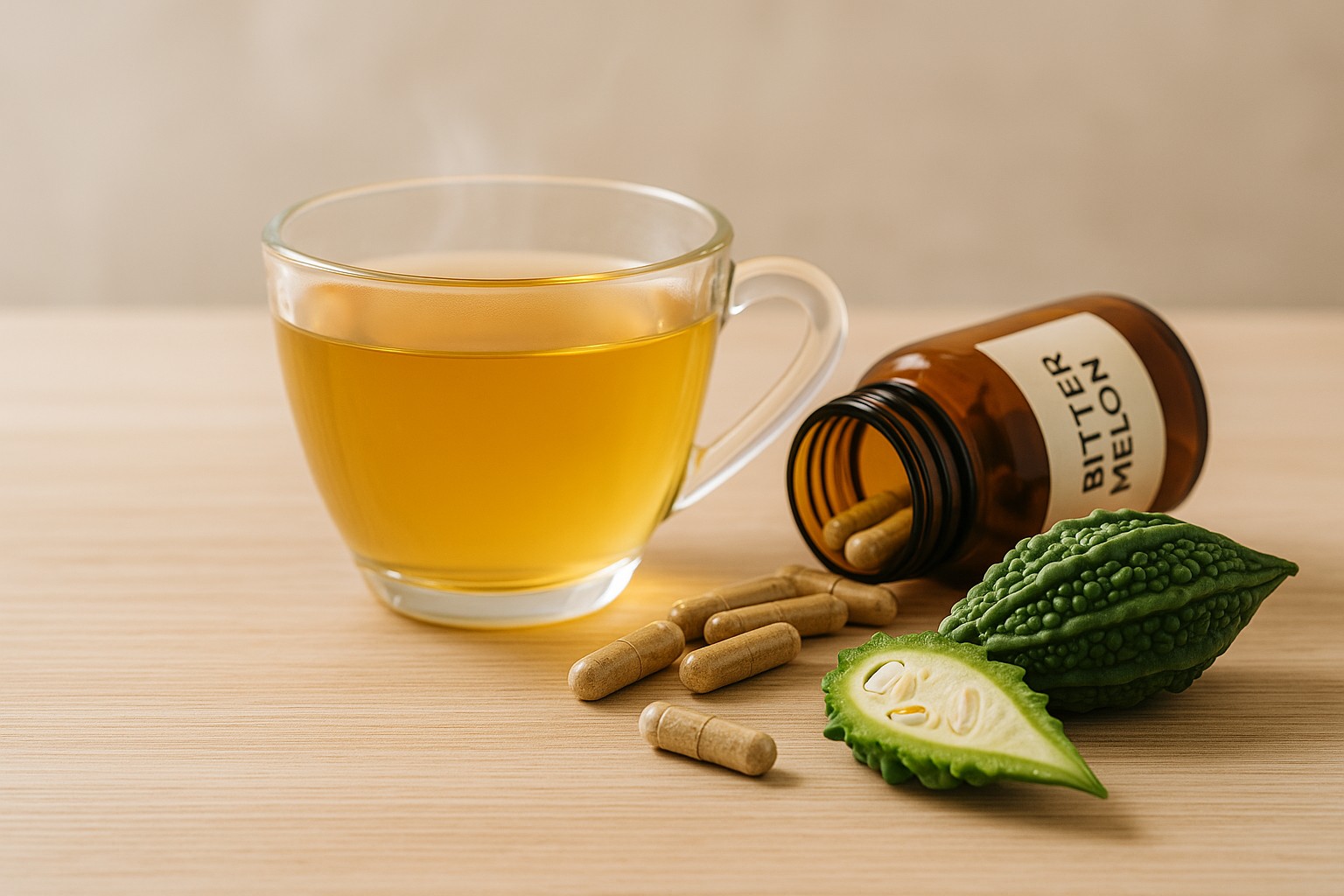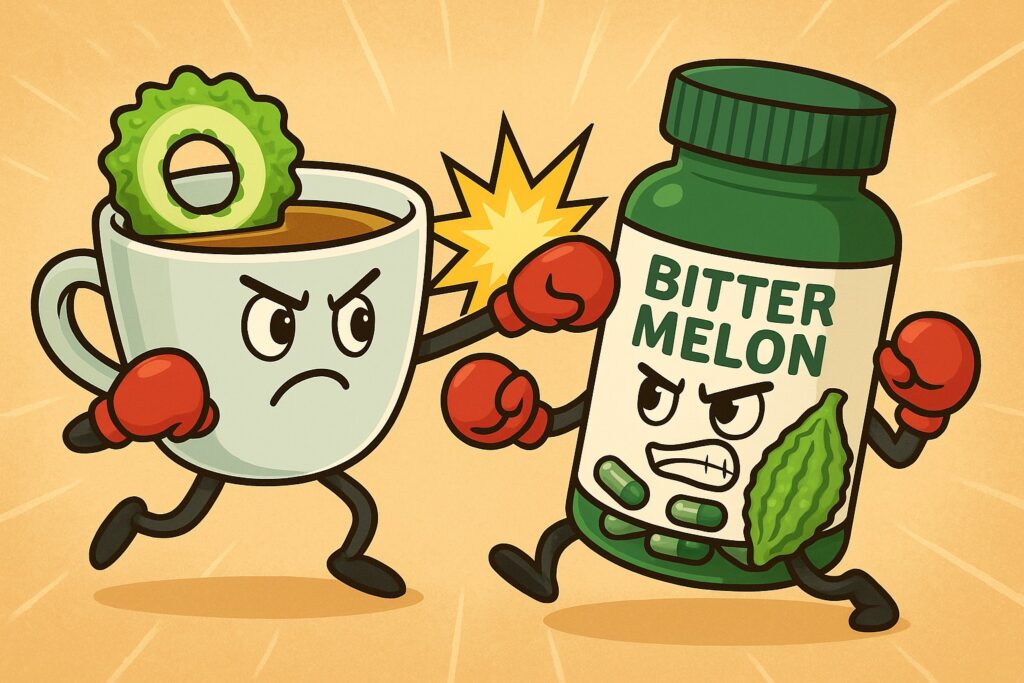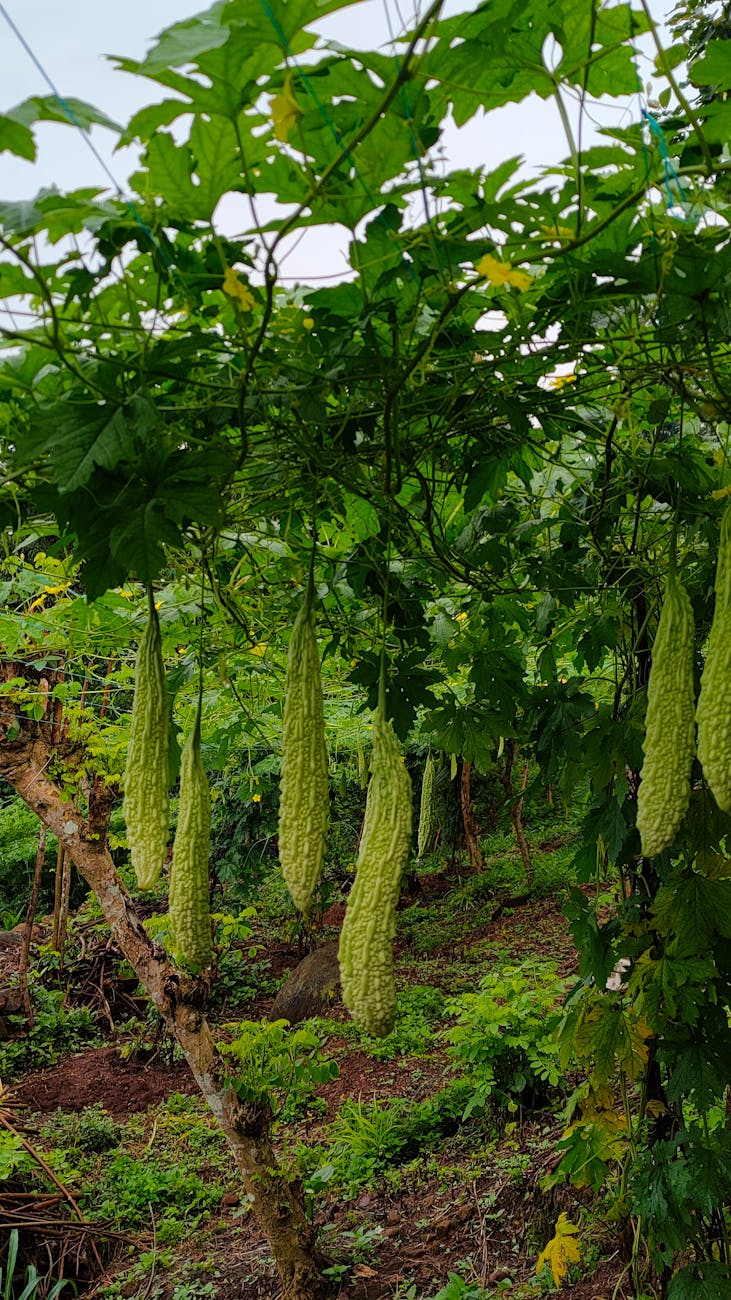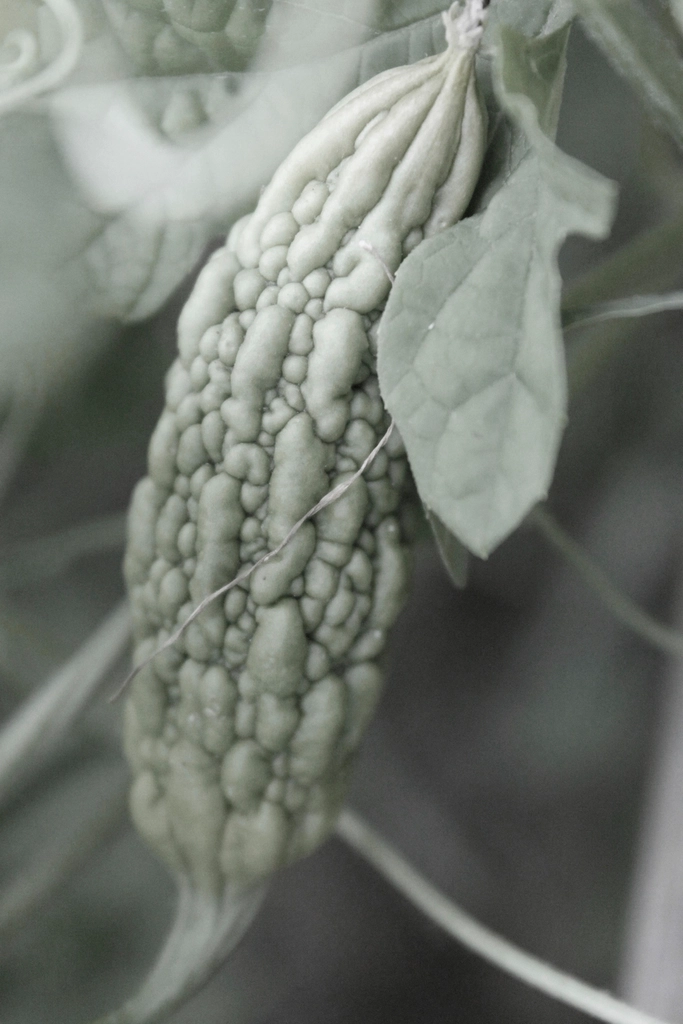
I remember my first glimpse of bitter melon, tucked away in some corner of an Asian market. Bumpy, pale green, and with a strange shape — it looked like a cucumber having a decade of bad luck. Back then, I never suspected that I was looking at the peculiar fruit that is most widely known in smoothies, in capsules, and most notoriously as a tea form — bitter melon would provoke people to define their preferences in the diabetes world!
Now here we are debating the merits of which is better: tea, or an easy capsule dose (noting that science is already dipping its toes in here…) If open to rebuttal, we can discuss sugar balances quick takes — then throw in stories, case studies, experiences, and anecdotes too!
Understanding Why Bitter Melon (Momordica charantia) Was Selected
To get the specifics straight: first, we need to be clear on what bitter melon is doing. Historically, traditional medicine — specifically Chinese, Indian, and beyond — were touting the benefits of bitter melon before our present time, a helper to food’s blood sugar control.
Indeed, in Sanskrit, bitter melon is known as Karela, a regular in Ayurvedic diets for folks like you who are struggling with a sugar imbalance.
And what exactly did science think? Increments, perhaps. Some of the most encouraging science appears to confirm that compounds in bitter melon behave almost like insulin; they drive glucose into cells rather than stay put in the blood.
Other human-based studies suggest that bitter melon:
- Reduces fasting glucose
- Improves glucose tolerance after a glucose challenge
- Reduces appetite for sweets
It is not magic. It is not the cure. But it can help.
The Tea Tradition: Steeping Culture and Chemistry
Bitter melon tea has been brewed in Asia for generations. You cut the fruit, dry it, steep it — hold on. Because to be frank, it is bitter. The first sip might be drinking aspirin, grabbing a cucumber rind and chewing that as a chaser. But folks swear by it.
Why?
It is thought that drinking bitter melon tea may release bioactive compounds (charantin, vicine, polypeptide-P) directly into the water. These are implied to act like insulin, to improve cells’ uptake of glucose.
Research Insights:
- Acute Trial (2016, Nature’s Nutrition & Diabetes Journal): In a small trial, volunteers drinking a bitter melon beverage before an oral glucose tolerance test (OGTT) had a 13% lower glucose area under the curve in comparison to the controls. Oddly, only ~50% of the subjects had a meaningful response.
- Traditional Use: In rural India, it is common for folks to imbibe bitter melon tea on a daily basis during the summer. Locals state it has a “lighter” effect on their body, which is a poetic method for stating the lighter “heaviness” influence of sugar from meals.
The Ritual Factor
One implicit positive benefit: a tea by its nature makes you slow down. The preparation, sipping it hot — the whole ritual might help people be more conscious of their overall health.
But inconsistency is a real drag.
- One brew may be too strong, another too weak.
- You might put in one bad slice too many, rendering it next to impossible to drink.
Capsules: Convenience Meets Concentration
Then came the line at the supplement aisle. Capsules filled with bitter melon extract or dried powder began appearing on the shelves. They solved the top complaint of tea drinkers — bitterness. Pop a pill, and no taste buds were harmed.
The Science:
- 12-Week RCT in Prediabetics (2023, PMC study): Patients taking capsules filled with bitter melon extract saw improved glucose levels after an OGTT and improved suppression of glucagon (the hormone that raises blood sugar) levels. Not just “folk wisdom”; that is a quantifiable endocrine response.
- Meta-analyses: Some reviews note that capsules sometimes underperform. Why? Because not every manufacturer extracts the same compounds in the same potency, so effects can be mixed.
Advantages of Capsules:
- Dosage control: Typically 500–1000 mg of extract, offering consistency.
- Convenience: Easy, portable, no taste.
Drawbacks:
Capsules lose the cultural supplement richness; there is no ritual or sensory experience. Also, in rare cases, compounds may absorb differently compared to water extracts.
Real-World Tangent: The Case of the “Maple Syrup Burp”
A buddy of mine once told me he tried the bitter melon capsules for about two months. The only side effect he reported? Every once in a while, his burps had a faint vegetal scent.
“Not terrible, but my wife kept asking me if I had been drinking green juice again.”
This story illustrates a common issue: supplements provide convenience and ease, but they aren’t invisible. Some people experience:
- Stomach upset
- Mild diarrhea
- Odd aftertaste
Tea drinkers, on the other hand, confront their bitterness up front.
Tea Versus Capsules — A Face-to-Face Comparison

- Bioavailability
- Tea: absorbed quickly, water-soluble compounds (but variable strength).
- Capsules: consistent dosing (but absorption varies by formulation).
- Taste & Tolerance
- Tea: bitter; tough for new drinkers.
- Capsules: neutral taste; possible digestive upset.
- Cultural Connection
- Tea: rooted in tradition and ritual.
- Capsules: modern, sterile, convenient.
- Scientific Evidence
- Tea: limited human data, modest benefit.
- Capsules: RCTs show quantifiable improvements in glucose regulation.
- Practicality
- Tea: requires preparation, better for ritualists.
- Capsules: convenient, reliable dose, portable.
Who Would Be Best Suited for Tea?
If you adhere to, or subscribe to ritualistic practices, tea may be the best choice. Try to imagine brewing a pot of tea on a cold autumn evening, where steam rises and the mild bitterness of the bitter melon tea reminds you that healing is not always sweet.
Perhaps during this time you may just feel naturally inclined to continue down the path of experimenting with bitter melon tea, especially if you’re already used to other herbal infusions, such as chamomile tea or green tea, in your daily routines.
Who Would Be Best Suited for Capsules?
If you are a commuter, a parent, or someone who prefers to skip the boiling water each day, capsules may be the common sense choice.
Additionally, capsules allow you to rest in comfort knowing you are getting a reliable dose of bitter melon. A 1000 mg capsule is always 1000 mg — no guesswork involved.
The Elephant in the Room: Does Either Work Enough?
Here is where honesty is necessary. Bitter melon, in any form, is not a replacement for prescribed medication.
Most studies demonstrate slightly positive effects, not miracles. For example, in the 12-week capsule trial, improvements in glucose tolerance were statistically significant, but not monumental.
Think of bitter melon as an additional push to the body’s metabolism — not a new muscle.
The End: My Opinion

If I had to choose? I think I would go with tea. Mostly because I like the ritual, and because I like to feel true to the origin of the practice.
But after a few weeks, if the bitter flavor became annoying, I would go with capsules.
Here’s the good news — you don’t have to take a lifelong side. Some people do tea in the cold winter evenings, and capsules in the busy summer travels. That is totally acceptable.
The great victory? Awareness. By comparing tea vs. capsules, you’re already taking steps toward better blood sugar management.
One Last Caution…
- Bitter melon can induce hypoglycemia when stacked on top of medication.
- Pregnant women are generally advised to avoid bitter melon.
- Always, always check with your doctor before adding it to your therapy.
Final Thought
So, tea or capsules? The answer is far less about the science (although evidence exists for both), and more about the person holding the teacup… or the pill.
Bitter melon is not glamorous, and it sure isn’t sweet, but it has a history of centuries of tradition, and an ever-increasing body of science that states: yes, it might help.
Not cure. Not replace. Help.
And sometimes, that’s all we need.
🔗 Related Articles You May Enjoy
- 👉 Gymnema Sylvestre: The “Sugar Destroyer” Herb for Blood Sugar Control
- 👉 Chromium and Diabetes: What the Research Really Says
- 👉 Best Herbal Teas for Blood Sugar Support
📌 Disclaimer
This article is for educational purposes only and should not be taken as medical advice. Bitter melon may interact with diabetes medications and could cause hypoglycemia. Pregnant women and those on prescription treatments should consult a healthcare provider before use.
✍️ About the Author
Written by Omar Aljaff — founder of Remedy Verified. Passionate about evidence-based natural remedies, Omar explores how traditional wisdom meets modern science to help people make smarter health choices.
